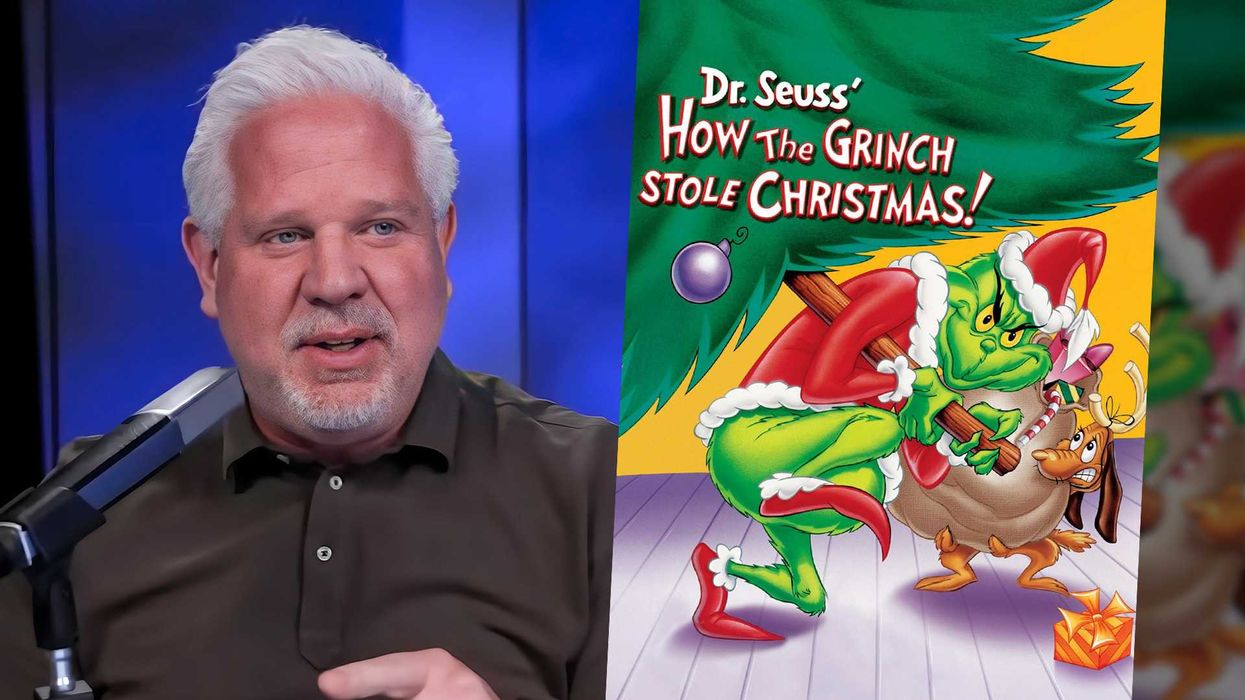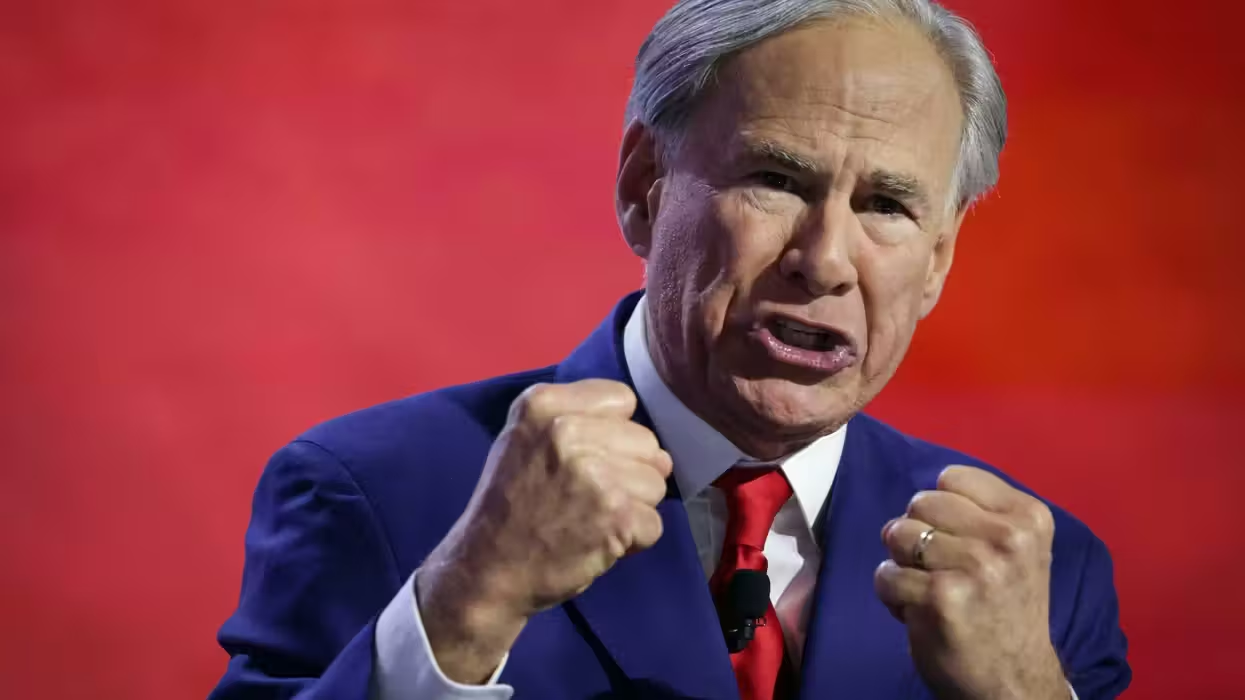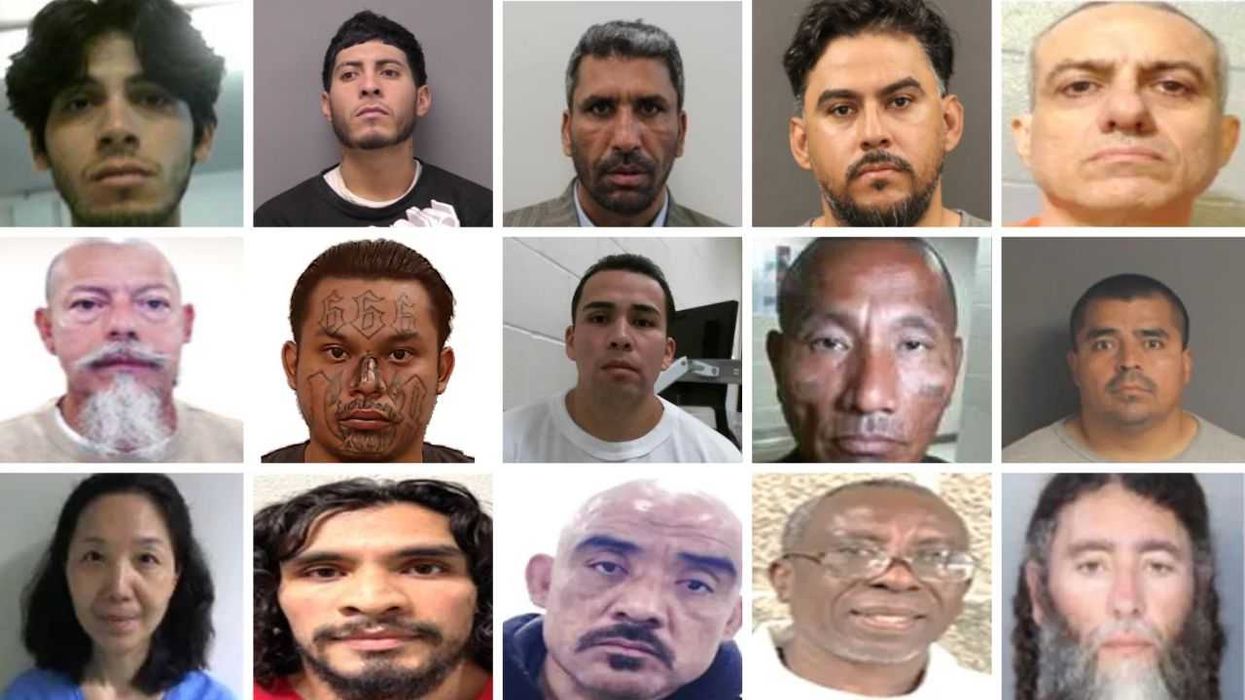
© 2025 Blaze Media LLC. All rights reserved.
6 Perspectives on the Most Important Issues to Religious People This Election Cycle (Abortion, Contraception & Iran)
October 31, 2012
"...how long before your nation tears itself apart?"

When it comes to faith and politics, some argue on the basis of the separation of church and state that the two must remain mutually exclusive. However, such a notion, in practice, seems difficult, particularly when it comes to public policy issues that either corroborate or conflict with individuals' personal religious views.
From helping those in need to taking a stand on abortion, the tenets of theology and politics regularly converge in U.S. politics. To obtain a better understanding of where liberal and conservative people of faith stand, this week, Patheos asked a diverse pool of religious leaders and bloggers to describe the most important issues to them this election cycle.
The question, "What are the key issues at stake in this election for people of your tradition?," yielded some fascinating results. Read them, below:
--
 Photo Credit: Patheos.com
Photo Credit: Patheos.com
Real Clear Religion Founder Jeremy Lott: Last time, Barack Obama was awful on abortion and he hasn’t gotten any better. Obamacare could seriously impede the operation of Catholic institutions, medical and otherwise, with its mandates to finance things the church — and millions of Catholics right along with it — considers deeply immoral.
Obama was a little bit better on war, though he’s proved extremely disappointing on that front as well — committing the country to war with Libya without so much as a by-your-leave to Congress, for one. Obama hasn’t committed ground troops to any new theaters. Other than that, he’s been a disaster.
Mitt Romney professes to be better than Obama on abortion these days. Indeed it would be hard to be any worse. Unlike many pols who profess to be “personally opposed, but” on the issue, we know that Romney actually was personally opposed even when he didn’t want to change the law, because as a Mormon bishop he urged several women not to have abortions. Read the entire article...
--
 Photo Credit: Patheos.com
Photo Credit: Patheos.com
Atheist-Turned-Catholic Blogger Leah Libresco: During the debate, both Obama and Romney made proud reference to the “crippling sanctions” they supported imposing on Iran. Crippling is an awfully strong word, and it’s proper object there isn’t really the abstract idea of Iran. [...]
I led with the Iranian sanctions, because they stood out to me in the debate, probably because they actually got the adjective they deserved, instead of being entirely swaddled in rhetoric. Of course, the more canonical example for both parties disregard for life is the drone war and the kill list. These policies have been expanded under Obama and Romney has raised nary a peep in objection.
Again, this is a policy where the United States asserts an authority to assassinate anyone the president and a few other people see as a threat (or standing in proximity to a threat — remember any militant-aged boys are classified as confirmed militantsin the casualty reports). Citizenship and due process are easily waived. Read the rest of the article...
--
 Photo Credit: Patheos.com
Photo Credit: Patheos.com
Feminist Blogger and Professor Caryn Riswold: I stand in two traditions – Lutheranism and feminism...the social safety net feature of government is an essential issue for people in this tradition. Social security, Medicare, Medicaid, Pell grants, and the many ways in which Mitt Romney’s derided 47% relies on these programs at key points in life matter in this election. [...]
Both as a Lutheran and as a feminist, poverty and economic inequality are key issues that I am considering this election because of their impact on women, families, and their communities.
And given the political parties and their track records recently, the choice for me on election day will be very clear. Read the rest of the post...
--
 Photo Credit: Patheos.com
Photo Credit: Patheos.com
Oklahoma House of Representatives member Rebecca Hamilton: Something about Catholics picking out one issue and saying “That’s it! That’s the only thing you need to care about in this election!” seems wrong to me. I don’t think you can trim the Gospels down to an issue, or for that matter to an election, or the democratic process itself.
Following Christ means giving all of you, your whole life, and not just your vote. Too many people these days have convinced themselves that voting right is the equivalent to living right, and living right is all the grace or goodness any of us will ever need. My main complaint about that tidy little approach to Christianity is that I don’t believe it’s Christianity at all. [...]
Clearly, the one issue that threatens my Church, which is the Catholic Church, above all others is the HHS Mandate. Read the rest of the article here...
--
 Photo Credit: Patheos.com
Photo Credit: Patheos.com
Missouri School of Law Professor Joshua D. Hawley: Through the 1980s and ’90s, evangelicals sought to turn back the forces of secularization. Groups like the Moral Majority and the Christian Coalition pressed for laws recognizing Christianity’s unique place in American life, including laws that would allow prayer in public schools and Christian displays in public places. They advocated a constitutional amendment to overturn Roe v. Wade.
In the main, the idea was to resurrect America’s Christian identity, to win from the public and from the government recognition of “Christian values,” and reaffirmation of Christianity’s special place in American history and culture. The aim was, in a sense, to “convert” both society and government.
That approach is due for a rethink. For one thing, it depends on a Christian social hegemony that is likely lost for good. Believing Christians no longer constitute an overwhelming majority of the American public, nor do they occupy the commanding heights of culture, entertainment, and academia. As a sheer projection of demographic destiny, they are unlikely to do so anytime soon. Read the rest of the post...
--
 Photo Credit: Patheos.com
Photo Credit: Patheos.com
Christian Pastor Adrian Warnock: It might surprise you to know that in the UK we just don’t seem to feel our politics as strongly as you do. Few of us passionately and unequivocally support one party or the other. The notion that anybody would “register” as either a Conservative (most similar to your Republican) or Labour (similar to your Democrat) voter seems bizarre. When our last election came round, I don’t even know for sure how most of my friends voted!
Over here someone might be inclined towards the Conservatives, but admire the Labour Tony Blair as a leader. They might believe in abolishing abortion in almost all cases (a very common opinion among Evangelicals) but decide to vote Labour because they believe supporting spending more money on the poor and needy is a way of expressing Christian love. Few Evangelicals in the UK believe that supporting either party is a necessary consequence of their faith.
I look at your media, your political adverts, your adversarial debates, and I wonder, how long before your nation tears itself apart? Can either of the candidates unite the land? With your red states and blue states, it often seems to me like you are not a very United States at all! Read the rest...
--
Read more perspectives on the most important issues this election cycle over at Patheos.com.
--
Related:
Want to leave a tip?
We answer to you. Help keep our content free of advertisers and big tech censorship by leaving a tip today.
Want to join the conversation?
Already a subscriber?
Billy Hallowell is a digital TV host and interviewer for Faithwire and CBN News and the co-host of CBN’s "Quick Start Podcast."
Billy Hallowell
Billy Hallowell is a digital TV host and interviewer for Faithwire and CBN News and the co-host of CBN’s "Quick Start Podcast."
more stories
Sign up for the Blaze newsletter
By signing up, you agree to our Privacy Policy and Terms of Use, and agree to receive content that may sometimes include advertisements. You may opt out at any time.
Related Content
© 2025 Blaze Media LLC. All rights reserved.
Get the stories that matter most delivered directly to your inbox.
By signing up, you agree to our Privacy Policy and Terms of Use, and agree to receive content that may sometimes include advertisements. You may opt out at any time.






